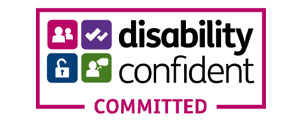What does an era of scrutiny and ready criticism mean for leadership?
This is an unprecedented moment in time, where the old rules no longer apply. We live in an age characterised by an urgent need to solve the complex economic, social and environmental issues that face our society. With an apparently increased breakdown of trust in senior public figures, the media is full of stories suggestive of social unease and disenfranchisement.
Yet a strong and active spirit of social justice remains within communities and the organisations serving them locally, regionally and nationally. This determination may come from deep within those communities themselves, in isolation or in collaboration with others. There is no shortage of appetite to get involved; we see far more people who work outside of public and third sector organisations worried about the future and actively seeking opportunities to play a role in social change. If it hasn’t been before, social change is now everyone’s responsibility.
For people who take on leadership roles in pursuit of this, there is a constant stream of challenge and opportunity to navigate. Leaders are increasingly exposed, and often find themselves under relentless scrutiny by the public. We live in a society influenced by a potent mix of rising expectation and, at the same time, increased accessibility via social media. Both the public and media demand answers with virtually no time to prepare. While scrutiny is a force for good, the wrong kind of scrutiny can mean these roles come at a personal cost.
None of this deters those who are motivated by making a difference. How are these leaders staying ahead of the game? The old heroic model of leadership is no longer fit for purpose. Contemporary leaders need to go beyond embracing ambiguity; they need to be disruptive to instigate change and for their organisations to flourish. They expect the unexpected and their resilience to cope with chaos often stems from their honesty and deep commitment to the cause. They are equipped to respond to challenge calmly and often do so with humility.
Contemporary leaders need to go beyond embracing ambiguity; they need to be disruptive to instigate change and for their organisations to flourish
Finding the right person for the job means recognising emerging leadership characteristics and behaviours such as:
- Acting as facilitator and alliance builder. No single sector can solve such complicated and entrenched social issues alone. These are system issues that need a system response. Great leaders galvanise and inspire others to join them in solving the problem.
- Working in co-creation. Leaders who want to achieve social change realise there is much more to gain by earning trust and shaping the agenda with the communities they serve. There is no ivory tower here.
- Being calm in a crisis. They know that the values of their organisation and commitment to positive outcomes is authentic and they have been transparent about their business.
- Using insight and capacity for self-challenge. They rely on their emotional intelligence to anticipate and understand their impact on others.
Expert Interim Talent: How to Launch Your Portfolio Career
Today's business landscape demands agility and specialised expertise. Discover how to leverage your skills across diverse, high-impact projects, gaining unprecedented flexibility and autonomy. Forget "holding the fort", modern interims are strategic leaders, driving change and delivering results in times of transformation.
Recruiting leaders in perilous times
Leadership appointments have always carried weight, but in the current climate they carry a different kind of exposure. For those of us working at the interface between Boards and candidates, it is clear that the rules of engagement have shifted, and that executive search must shift with them.
In praise of Gen Z
I surveyed my multi-generational team on what they wanted from work. Here's what I learned.
ACCREDITATIONS


ESPO is a public sector owned professional buying organisation (PBO), specialising in providing a wide range of goods and services to the public sector for over 40 years. Starfish Search has been awarded a place on ESPO’s Strategic HR Services framework (3S). Services we offer under the framework include: Lot 1, Executive and Managerial Interim Recruitment Lot 2, Executive and Managerial Permanent Recruitment.


Starfish are proud to be certified Disability Confident Committed. This scheme provides employers with the knowledge, skills and confidence needed to attract, recruit, retain and develop disabled people in the workplace.


Crown Commercial Service supports the public sector to achieve maximum commercial value when procuring common goods and services. In 2020/21, CCS helped the public sector to achieve commercial benefits equal to £2.04bn - supporting world-class public services that offer best value for taxpayers. Starfish Search has been named as a supplier on Crown Commercial Service’s Executive and Non-Executive recruitment. Services we offer under the framework include: Lot 3 - Non-Executive and Public Appointments.


Bloom, launched in 2012 is the UK’s leading marketplace for professional services. They provide an end-to-end solution for the procurement, contract management and payment of all professional services, via the compliant NEPRO³ framework. Their public sector clients have access to 20 professional services categories and over 4500 accredited suppliers. Bloom provides swift routes to market via either direct award or mini competition. Starfish is an accredited supplier to BLOOM; our services can be accessed via this framework - Executive and Non-Executive Search and Interim Management.
Join the starfish team
We hire people who bring insight, integrity and ambition to their work. If you’re ready to contribute to shaping the future of leadership and you want to explore our current opportunities please click the link below.
find out more